- Date: October 10, 2022 - October 11, 2022
Where: University of Freiburg, Germany
Research Areas: Control, Machine Learning, Optimization
Brief - Rien Quirynen is an invited speaker at an international workshop on Embedded Optimization and Learning for Robotics and Mechatronics, which is organized by the ELO-X project at the University of Freiburg in Germany. This talk, entitled "Embedded learning, optimization and predictive control for autonomous vehicles", presents recent results from multiple projects at MERL that leverage embedded optimization, machine learning and optimal control for autonomous vehicles.
This workshop is part of the ELO-X Fall School and Workshop. Invited external lecturers will present state-of-the-art techniques and applications in the field of Embedded Optimization and Learning. ELO-X is a Marie Curie Innovative Training Network (ITN) funded by the European Commission Horizon 2020 program.
-
- Date & Time: Tuesday, September 6, 2022; 12:00 PM EDT
Speaker: Chuang Gan, UMass Amherst & MIT-IBM Watson AI Lab
MERL Host: Jonathan Le Roux
Research Areas: Artificial Intelligence, Computer Vision, Machine Learning, Speech & Audio
Abstract 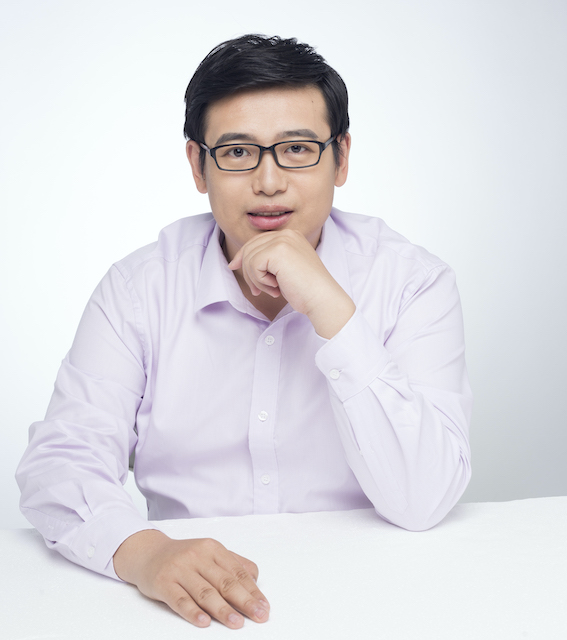 Human sensory perception of the physical world is rich and multimodal and can flexibly integrate input from all five sensory modalities -- vision, touch, smell, hearing, and taste. However, in AI, attention has primarily focused on visual perception. In this talk, I will introduce my efforts in connecting vision with sound, which will allow machine perception systems to see objects and infer physics from multi-sensory data. In the first part of my talk, I will introduce a. self-supervised approach that could learn to parse images and separate the sound sources by watching and listening to unlabeled videos without requiring additional manual supervision. In the second part of my talk, I will show we may further infer the underlying causal structure in 3D environments through visual and auditory observations. This enables agents to seek the sound source of repeating environmental sound (e.g., alarm) or identify what object has fallen, and where, from an intermittent impact sound.
Human sensory perception of the physical world is rich and multimodal and can flexibly integrate input from all five sensory modalities -- vision, touch, smell, hearing, and taste. However, in AI, attention has primarily focused on visual perception. In this talk, I will introduce my efforts in connecting vision with sound, which will allow machine perception systems to see objects and infer physics from multi-sensory data. In the first part of my talk, I will introduce a. self-supervised approach that could learn to parse images and separate the sound sources by watching and listening to unlabeled videos without requiring additional manual supervision. In the second part of my talk, I will show we may further infer the underlying causal structure in 3D environments through visual and auditory observations. This enables agents to seek the sound source of repeating environmental sound (e.g., alarm) or identify what object has fallen, and where, from an intermittent impact sound.
-
- Date: May 23, 2022 - May 27, 2022
Where: International Conference on Robotics and Automation (ICRA)
MERL Contacts: Ankush Chakrabarty; Stefano Di Cairano; Siddarth Jain; Devesh K. Jha; Pedro Miraldo; Daniel N. Nikovski; Arvind Raghunathan; Diego Romeres; Abraham P. Vinod; Yebin Wang
Research Areas: Artificial Intelligence, Machine Learning, Robotics
Brief - MERL researchers presented 5 papers at the IEEE International Conference on Robotics and Automation (ICRA) that was held in Philadelphia from May 23-27, 2022. The papers covered a broad range of topics from manipulation, tactile sensing, planning and multi-agent control. The invited talk was presented in the "Workshop on Collaborative Robots and Work of the Future" which covered some of the work done by MERL researchers on collaborative robotic assembly. The workshop was co-organized by MERL, Mitsubishi Electric Automation's North America Development Center (NADC), and MIT.
-
- Date & Time: Tuesday, May 3, 2022; 1:00 PM
Speaker: Michael Posa, University of Pennsylvania
MERL Host: Devesh K. Jha
Research Areas: Control, Optimization, Robotics
Abstract  Machine learning has shown incredible promise in robotics, with some notable recent demonstrations in manipulation and sim2real transfer. These results, however, require either an accurate a priori model (for simulation) or a large amount of data. In contrast, my lab is focused on enabling robots to enter novel environments and then, with minimal time to gather information, accomplish complex tasks. In this talk, I will argue that the hybrid or contact-driven nature of real-world robotics, where a robot must safely and quickly interact with objects, drives this high data requirement. In particular, the inductive biases inherent in standard learning methods fundamentally clash with the non-differentiable physics of contact-rich robotics. Focusing on model learning, or system identification, I will show both empirical and theoretical results which demonstrate that contact stiffness leads to poor training and generalization, leading to some healthy skepticism of simulation experiments trained on artificially soft environments. Fortunately, implicit learning formulations, which embed convex optimization problems, can dramatically reshape the optimization landscape for these stiff problems. By carefully reasoning about the roles of stiffness and discontinuity, and integrating non-smooth structures, we demonstrate dramatically improved learning performance. Within this family of approaches, ContactNets accurately identifies the geometry and dynamics of a six-sided cube bouncing, sliding, and rolling across a surface from only a handful of sample trajectories. Similarly, a piecewise-affine hybrid system with thousands of modes can be identified purely from state transitions. Time permitting, I'll discuss how these learned models can be deployed for control via recent results in real-time, multi-contact MPC.
Machine learning has shown incredible promise in robotics, with some notable recent demonstrations in manipulation and sim2real transfer. These results, however, require either an accurate a priori model (for simulation) or a large amount of data. In contrast, my lab is focused on enabling robots to enter novel environments and then, with minimal time to gather information, accomplish complex tasks. In this talk, I will argue that the hybrid or contact-driven nature of real-world robotics, where a robot must safely and quickly interact with objects, drives this high data requirement. In particular, the inductive biases inherent in standard learning methods fundamentally clash with the non-differentiable physics of contact-rich robotics. Focusing on model learning, or system identification, I will show both empirical and theoretical results which demonstrate that contact stiffness leads to poor training and generalization, leading to some healthy skepticism of simulation experiments trained on artificially soft environments. Fortunately, implicit learning formulations, which embed convex optimization problems, can dramatically reshape the optimization landscape for these stiff problems. By carefully reasoning about the roles of stiffness and discontinuity, and integrating non-smooth structures, we demonstrate dramatically improved learning performance. Within this family of approaches, ContactNets accurately identifies the geometry and dynamics of a six-sided cube bouncing, sliding, and rolling across a surface from only a handful of sample trajectories. Similarly, a piecewise-affine hybrid system with thousands of modes can be identified purely from state transitions. Time permitting, I'll discuss how these learned models can be deployed for control via recent results in real-time, multi-contact MPC.
-
- Date: May 4, 2022
MERL Contact: Radu Corcodel
Research Areas: Computer Vision, Robotics
Brief - Radu Corcodel, a Principal Research Scientist in MERL's Computer Vision Group, will present an overview of the Robot Perception research published by MERL for advanced manipulation. The talk will mainly cover topics pertaining to robotic manipulation in unstructured environments such as machine vision, tactile sensing and autonomous grasping. The seminar will also cover specific perception problems in non-prehensile interactions such as Contact-Implicit Trajectory Optimization and Tactile Classification, and is intended for a broader audience.
-
- Date & Time: Tuesday, April 12, 2022; 11:00 AM EDT
Speaker: Sebastien Gros, NTNU
Research Areas: Control, Dynamical Systems, Optimization
Abstract  Reinforcement Learning (RL), similarly to many AI-based techniques, is currently receiving a very high attention. RL is most commonly supported by classic Machine Learning techniques, i.e. typically Deep Neural Networks (DNNs). While there are good motivations for using DNNs in RL, there are also significant drawbacks. The lack of “explainability” of the resulting control policies, and the difficulty to provide guarantees on their closed-loop behavior (safety, stability) makes DNN-based policies problematic in many applications. In this talk, we will discuss an alternative approach to support RL, via formal optimal control tools based on Model Predictive Control (MPC). This approach alleviates the issues detailed above, but also presents some challenges. In this talk, we will discuss why MPC is a valid tool to support RL, and how MPC can be combined with RL (RLMPC). We will then discuss some recent results regarding this combination, the known challenges, and the kind of control applications where we believe that RLMPC will be a valuable approach.
Reinforcement Learning (RL), similarly to many AI-based techniques, is currently receiving a very high attention. RL is most commonly supported by classic Machine Learning techniques, i.e. typically Deep Neural Networks (DNNs). While there are good motivations for using DNNs in RL, there are also significant drawbacks. The lack of “explainability” of the resulting control policies, and the difficulty to provide guarantees on their closed-loop behavior (safety, stability) makes DNN-based policies problematic in many applications. In this talk, we will discuss an alternative approach to support RL, via formal optimal control tools based on Model Predictive Control (MPC). This approach alleviates the issues detailed above, but also presents some challenges. In this talk, we will discuss why MPC is a valid tool to support RL, and how MPC can be combined with RL (RLMPC). We will then discuss some recent results regarding this combination, the known challenges, and the kind of control applications where we believe that RLMPC will be a valuable approach.
-
- Date & Time: Tuesday, April 5, 2022; 11:00 AM EDT
Speaker: Albert Benveniste, Benoît Caillaud, and Mathias Malandain, Inria
MERL Host: Scott A. Bortoff
Research Areas: Dynamical Systems, Multi-Physical Modeling
Abstract 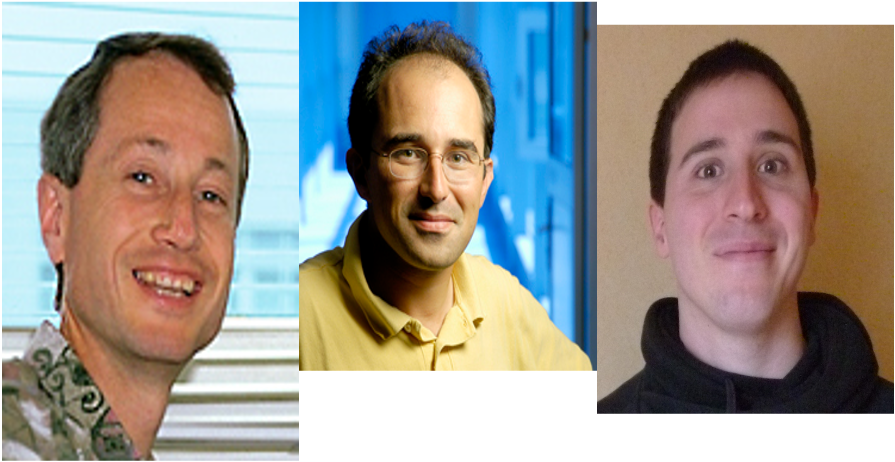 Since its 3.3 release, Modelica offers the possibility to specify models of dynamical systems with multiple modes having different DAE-based dynamics. However, the handling of such models by the current Modelica tools is not satisfactory, with mathematically sound models yielding exceptions at runtime. In our introduction, will briefly explain why and when the approximate structural analysis implemented in current Modelica tools leads to such errors. Then we will present our multimode Pryce Sigma-method for index reduction, in which the mode-dependent Sigma-matrix is represented in a dual form, by attaching, to every valuation of the sigma_ij entry of the Sigma matrix, the predicate characterizing the set of modes in which sigma_ij takes this value. We will illustrate this multimode analysis on example, by using our IsamDAE tool. In a second part, we will complement this multimode DAE structural analysis by a new structural analysis of mode changes (and, more generally, transient modes holding for zero time). Also, mode changes often give raise to impulsive behaviors: we will present a compile-time analysis identifying such behaviors. Our structural analysis of mode changes deeply relies on nonstandard analysis, which is a mathematical framework in which infinitesimals and infinities are first class citizens.
Since its 3.3 release, Modelica offers the possibility to specify models of dynamical systems with multiple modes having different DAE-based dynamics. However, the handling of such models by the current Modelica tools is not satisfactory, with mathematically sound models yielding exceptions at runtime. In our introduction, will briefly explain why and when the approximate structural analysis implemented in current Modelica tools leads to such errors. Then we will present our multimode Pryce Sigma-method for index reduction, in which the mode-dependent Sigma-matrix is represented in a dual form, by attaching, to every valuation of the sigma_ij entry of the Sigma matrix, the predicate characterizing the set of modes in which sigma_ij takes this value. We will illustrate this multimode analysis on example, by using our IsamDAE tool. In a second part, we will complement this multimode DAE structural analysis by a new structural analysis of mode changes (and, more generally, transient modes holding for zero time). Also, mode changes often give raise to impulsive behaviors: we will present a compile-time analysis identifying such behaviors. Our structural analysis of mode changes deeply relies on nonstandard analysis, which is a mathematical framework in which infinitesimals and infinities are first class citizens.
-
- Date & Time: Wednesday, March 30, 2022; 11:00 AM EDT
Speaker: Vincent Sitzmann, MIT
Research Areas: Artificial Intelligence, Computer Vision, Machine Learning
Abstract 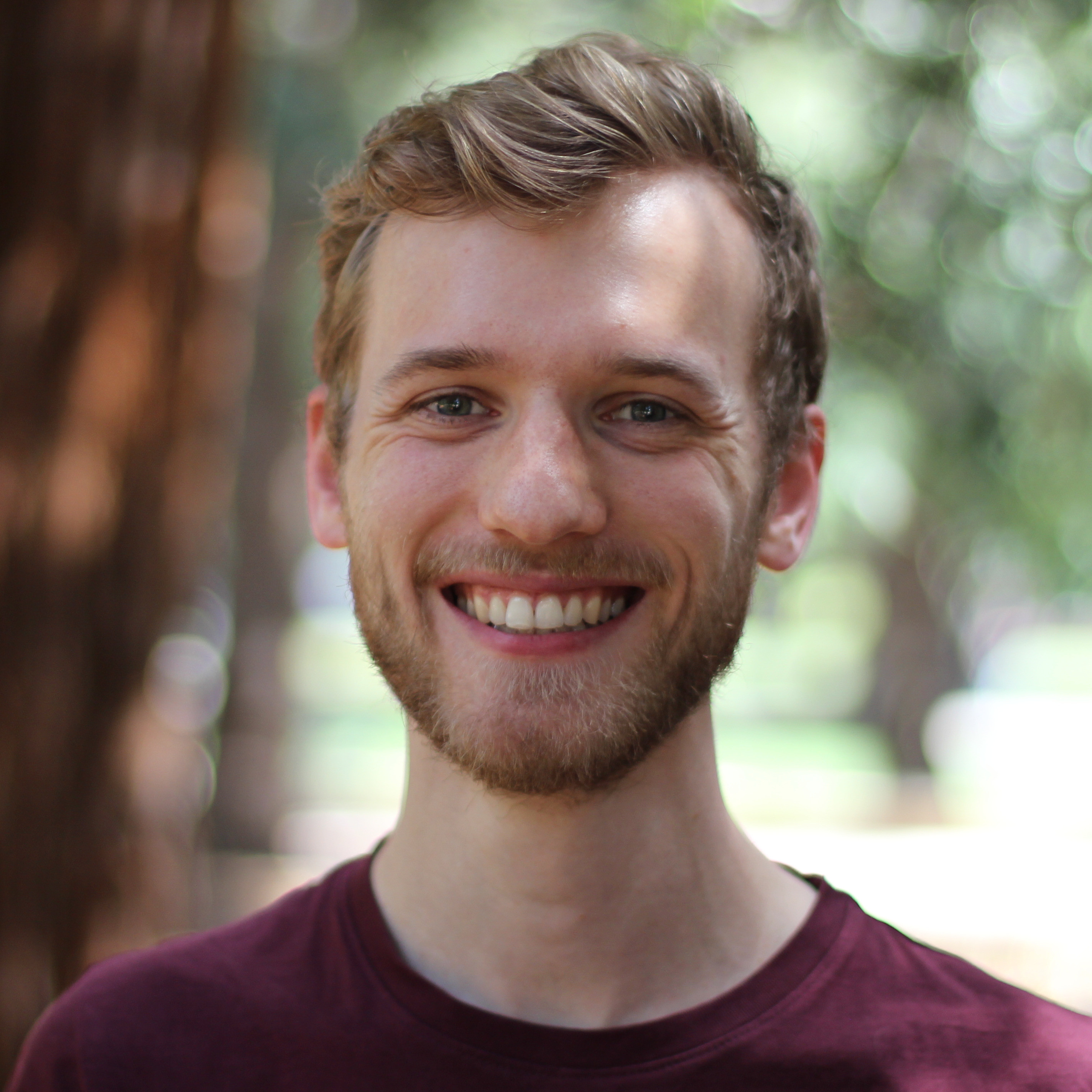 Given only a single picture, people are capable of inferring a mental representation that encodes rich information about the underlying 3D scene. We acquire this skill not through massive labeled datasets of 3D scenes, but through self-supervised observation and interaction. Building machines that can infer similarly rich neural scene representations is critical if they are to one day parallel people’s ability to understand, navigate, and interact with their surroundings. This poses a unique set of challenges that sets neural scene representations apart from conventional representations of 3D scenes: Rendering and processing operations need to be differentiable, and the type of information they encode is unknown a priori, requiring them to be extraordinarily flexible. At the same time, training them without ground-truth 3D supervision is an underdetermined problem, highlighting the need for structure and inductive biases without which models converge to spurious explanations.
Given only a single picture, people are capable of inferring a mental representation that encodes rich information about the underlying 3D scene. We acquire this skill not through massive labeled datasets of 3D scenes, but through self-supervised observation and interaction. Building machines that can infer similarly rich neural scene representations is critical if they are to one day parallel people’s ability to understand, navigate, and interact with their surroundings. This poses a unique set of challenges that sets neural scene representations apart from conventional representations of 3D scenes: Rendering and processing operations need to be differentiable, and the type of information they encode is unknown a priori, requiring them to be extraordinarily flexible. At the same time, training them without ground-truth 3D supervision is an underdetermined problem, highlighting the need for structure and inductive biases without which models converge to spurious explanations.
I will demonstrate how we can equip neural networks with inductive biases that enables them to learn 3D geometry, appearance, and even semantic information, self-supervised only from posed images. I will show how this approach unlocks the learning of priors, enabling 3D reconstruction from only a single posed 2D image, and how we may extend these representations to other modalities such as sound. I will then discuss recent work on learning the neural rendering operator to make rendering and training fast, and how this speed-up enables us to learn object-centric neural scene representations, learning to decompose 3D scenes into objects, given only images. Finally, I will talk about a recent application of self-supervised scene representation learning in robotic manipulation, where it enables us to learn to manipulate classes of objects in unseen poses from only a handful of human demonstrations.
-
- Date: June 19, 2022
Research Areas: Communications, Electronic and Photonic Devices, Machine Learning
Brief - MERL Researcher Rui Ma will give an invited talk titled "All Digital Transmitter with GaN Switching Mode Power Amplifiers"at a technical workshop during International Microwave Symposium (IMS)2022. This IMS workshop (WSN) invites members from academia and industry to discuss the latest development activities in the area of digital-intensive power amplifiers and transmitters for RF communications.
In addition, Dr. Rui Ma is chairing a Technical Session(We2C) on "AI/ML on RF and mmWave Applications" at IMS2022.
IMS is the flagship annual conference of IEEE Microwave Theory and Technology Society(MTT-S).
Learn more here:
Sessions
Workshops
-
- Date: March 10, 2022
Where: Department of Mathematics, KTH Royal Institute of Technology
MERL Contact: Arvind Raghunathan
Research Area: Optimization
Brief - Arvind Raghunathan will present the Optimization and System Theorem seminar in the Department of Mathematics at the KTH Royal Institute of Technology. The title of the talk is Recursive McCormick Linearizations of Multilinear Programs: Minimum Size Formulations.
-
- Date: March 1, 2022
Where: Online/Zoom
MERL Contact: Devesh K. Jha
Research Areas: Artificial Intelligence, Machine Learning, Robotics
Brief - Devesh Jha, a Principal Research Scientist in MERL's Data Analytics group, gave an invited talk at the Mechanical and Aerospace Engineering Department, NYU. The title of the talk was "Robotic Manipulation in the Wild: Planning, Learning and Control through Contacts". The talk presented some of the recent work done at MERL for robotic manipulation in unstructured environments in the presence of significant uncertainty.
-
- Date & Time: Tuesday, March 1, 2022; 1:00 PM EST
Speaker: David Harwath, The University of Texas at Austin
MERL Host: Chiori Hori
Research Areas: Artificial Intelligence, Machine Learning, Speech & Audio
Abstract 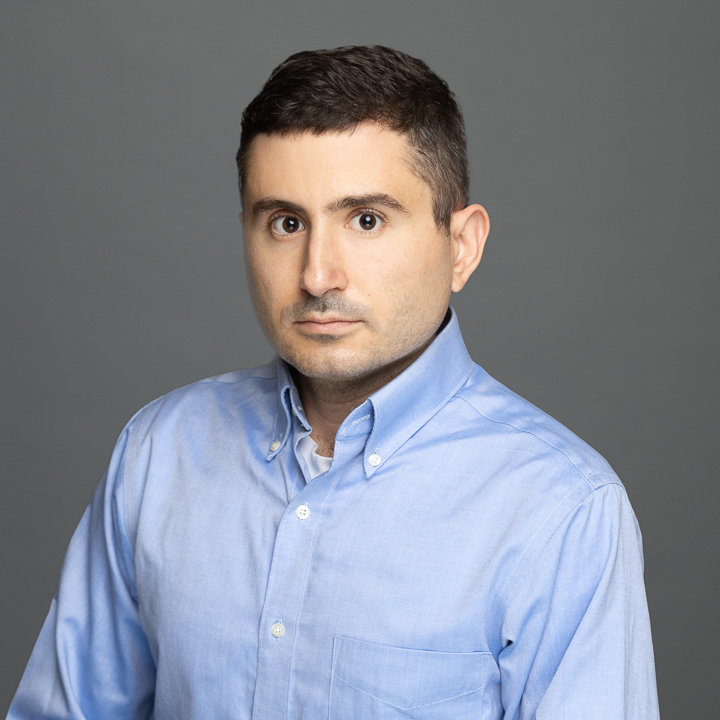 Humans learn spoken language and visual perception at an early age by being immersed in the world around them. Why can't computers do the same? In this talk, I will describe our ongoing work to develop methodologies for grounding continuous speech signals at the raw waveform level to natural image scenes. I will first present self-supervised models capable of discovering discrete, hierarchical structure (words and sub-word units) in the speech signal. Instead of conventional annotations, these models learn from correspondences between speech sounds and visual patterns such as objects and textures. Next, I will demonstrate how these discrete units can be used as a drop-in replacement for text transcriptions in an image captioning system, enabling us to directly synthesize spoken descriptions of images without the need for text as an intermediate representation. Finally, I will describe our latest work on Transformer-based models of visually-grounded speech. These models significantly outperform the prior state of the art on semantic speech-to-image retrieval tasks, and also learn representations that are useful for a multitude of other speech processing tasks.
Humans learn spoken language and visual perception at an early age by being immersed in the world around them. Why can't computers do the same? In this talk, I will describe our ongoing work to develop methodologies for grounding continuous speech signals at the raw waveform level to natural image scenes. I will first present self-supervised models capable of discovering discrete, hierarchical structure (words and sub-word units) in the speech signal. Instead of conventional annotations, these models learn from correspondences between speech sounds and visual patterns such as objects and textures. Next, I will demonstrate how these discrete units can be used as a drop-in replacement for text transcriptions in an image captioning system, enabling us to directly synthesize spoken descriptions of images without the need for text as an intermediate representation. Finally, I will describe our latest work on Transformer-based models of visually-grounded speech. These models significantly outperform the prior state of the art on semantic speech-to-image retrieval tasks, and also learn representations that are useful for a multitude of other speech processing tasks.
-
- Date & Time: Tuesday, February 15, 2022; 1:00 PM EST
Speaker: Katie Bouman, California Institute of Technology
MERL Host: Joshua Rapp
Research Area: Computational Sensing
Abstract 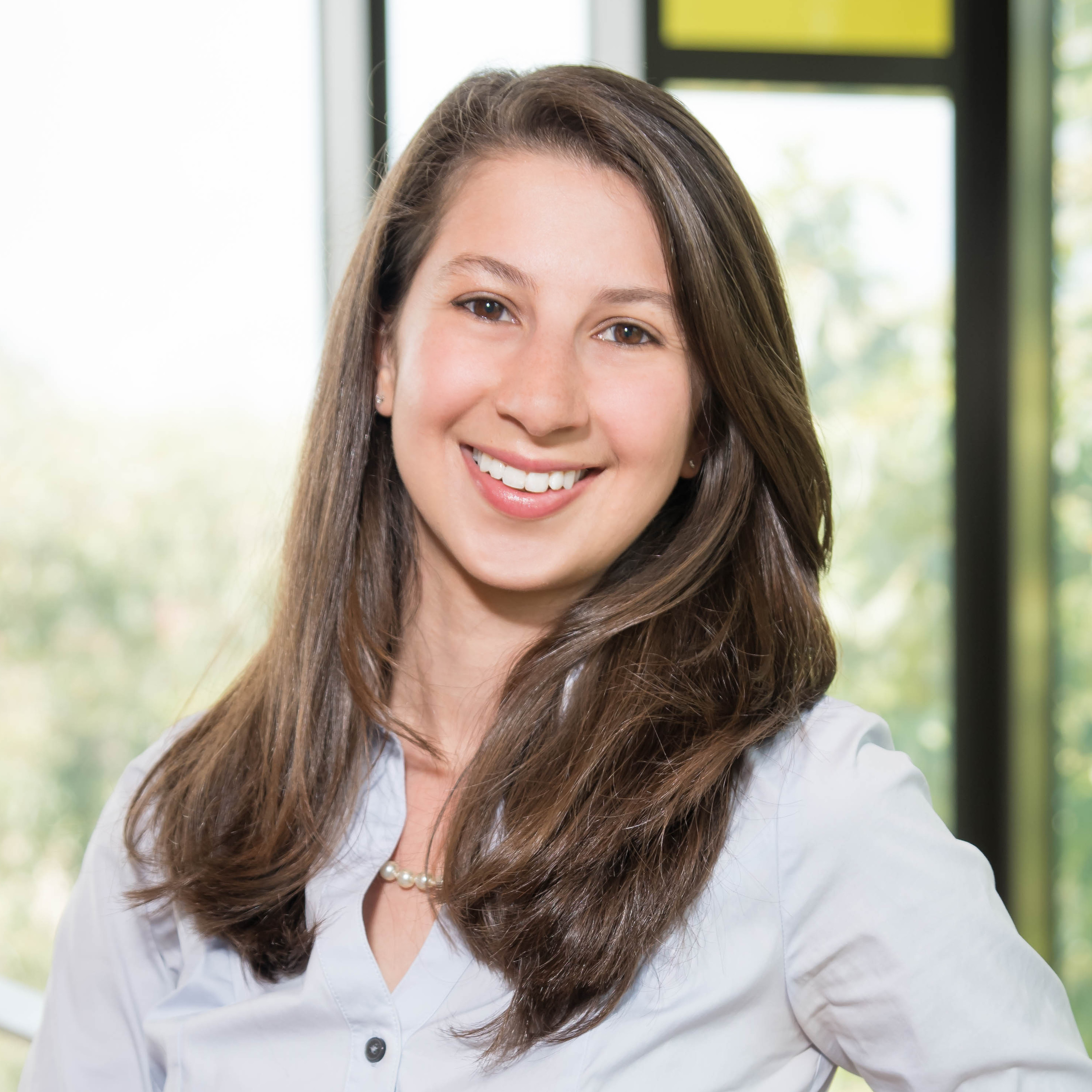 As imaging requirements become more demanding, we must rely on increasingly sparse and/or noisy measurements that fail to paint a complete picture. Computational imaging pipelines, which replace optics with computation, have enabled image formation in situations that are impossible for conventional optical imaging. For instance, the first black hole image, published in 2019, was only made possible through the development of computational imaging pipelines that worked alongside an Earth-sized distributed telescope. However, remaining scientific questions motivate us to improve this computational telescope to see black hole phenomena still invisible to us and to meaningfully interpret the collected data. This talk will discuss how we are leveraging and building upon recent advances in machine learning in order to achieve more efficient uncertainty quantification of reconstructed images as well as to develop techniques that allow us to extract the evolving structure of our own Milky Way's black hole over the course of a night, perhaps even in three dimensions.
As imaging requirements become more demanding, we must rely on increasingly sparse and/or noisy measurements that fail to paint a complete picture. Computational imaging pipelines, which replace optics with computation, have enabled image formation in situations that are impossible for conventional optical imaging. For instance, the first black hole image, published in 2019, was only made possible through the development of computational imaging pipelines that worked alongside an Earth-sized distributed telescope. However, remaining scientific questions motivate us to improve this computational telescope to see black hole phenomena still invisible to us and to meaningfully interpret the collected data. This talk will discuss how we are leveraging and building upon recent advances in machine learning in order to achieve more efficient uncertainty quantification of reconstructed images as well as to develop techniques that allow us to extract the evolving structure of our own Milky Way's black hole over the course of a night, perhaps even in three dimensions.
-
- Date & Time: Tuesday, February 8, 2022; 1:00 PM EST
Speaker: Raphaël Pestourie, MIT
MERL Host: Matthew Brand
Research Areas: Applied Physics, Electronic and Photonic Devices, Optimization
Abstract 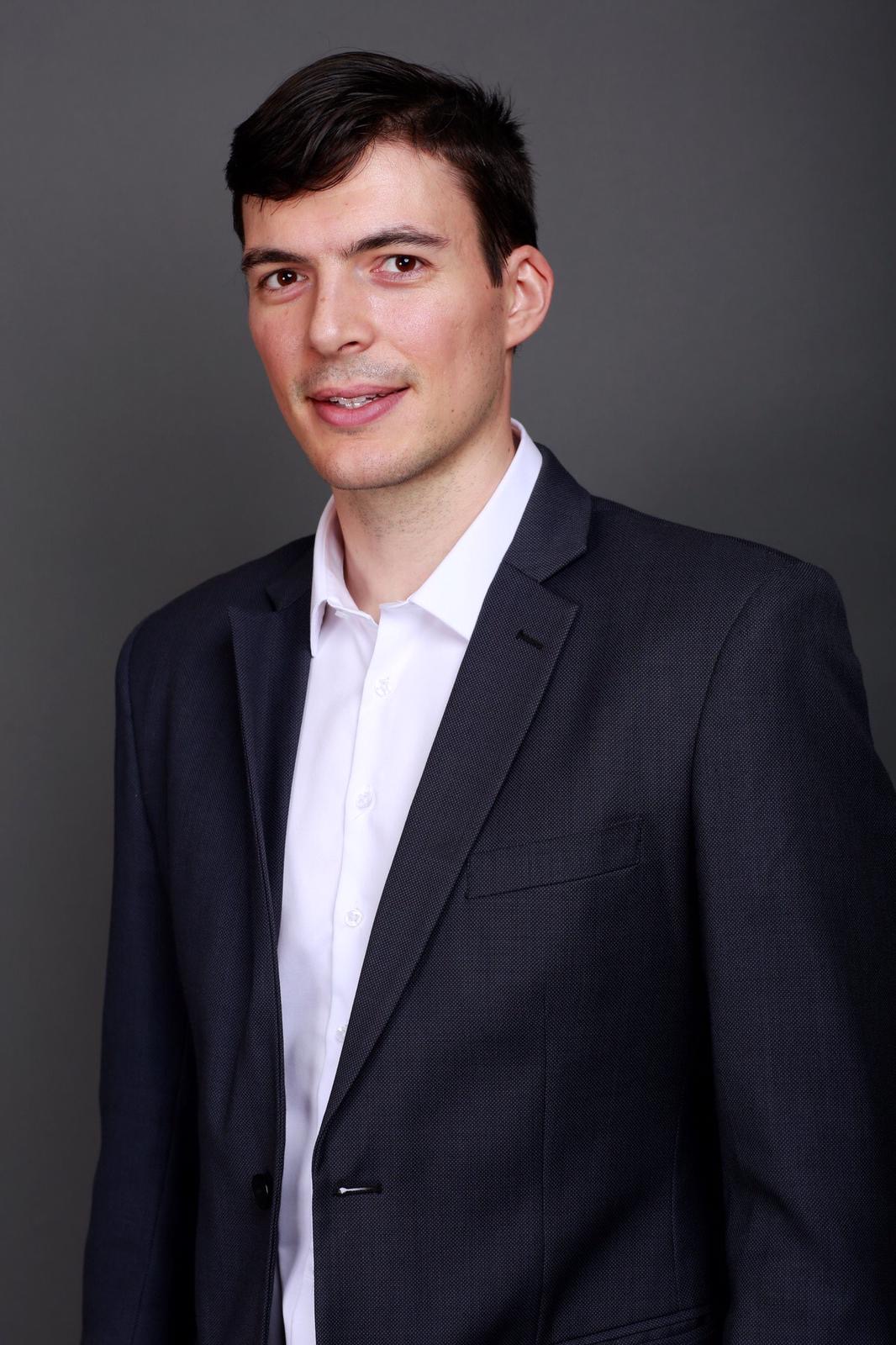 Thin large-area structures with aperiodic subwavelength patterns can unleash the full power of Maxwell’s equations for focusing light and a variety of other wave transformation or optical applications. Because of their irregularity and large scale, capturing the full scattering through these devices is one of the most challenging tasks for computational design: enter extreme optics! This talk will present ways to harness the full computational power of modern large-scale optimization in order to design optical devices with thousands or millions of free parameters. We exploit various methods of domain-decomposition approximations, supercomputer-scale topology optimization, laptop-scale “surrogate” models based on Chebyshev interpolation and/or new scientific machine learning models, and other techniques to attack challenging problems: achromatic lenses that simultaneously handle many wavelengths and angles, “deep” images, hyperspectral imaging, and more.
Thin large-area structures with aperiodic subwavelength patterns can unleash the full power of Maxwell’s equations for focusing light and a variety of other wave transformation or optical applications. Because of their irregularity and large scale, capturing the full scattering through these devices is one of the most challenging tasks for computational design: enter extreme optics! This talk will present ways to harness the full computational power of modern large-scale optimization in order to design optical devices with thousands or millions of free parameters. We exploit various methods of domain-decomposition approximations, supercomputer-scale topology optimization, laptop-scale “surrogate” models based on Chebyshev interpolation and/or new scientific machine learning models, and other techniques to attack challenging problems: achromatic lenses that simultaneously handle many wavelengths and angles, “deep” images, hyperspectral imaging, and more.
-
- Date: July 5, 2022 - July 7, 2022
Research Areas: Control, Data Analytics, Dynamical Systems
Brief - The Benelux meeting is an annual conference gathering of the scientific community of Belgium, the Netherlands, and Luxemburg around systems and control. It is especially intended for PhD researchers and a number of activities are dedicated to them, including plenary talks and a mini-course.
Dr. Benosman has been invited to give the mini-course of the 2022 edition of the conference. This course, entitled 'A hybrid approach to control: classical control theory meets machine learning theory', will be centered around the topic of safe and robust machine learning-based control.
-
- Date: January 24, 2022
Where: The TWIML AI Podcast
MERL Contact: Jonathan Le Roux
Research Areas: Artificial Intelligence, Machine Learning, Speech & Audio
Brief - MERL Speech & Audio Senior Team Leader Jonathan Le Roux was featured in an extended interview on the popular TWIML AI Podcast, presenting MERL's work towards solving the "cocktail party problem". Humans have the extraordinary ability to focus on particular sounds of interest within a complex acoustic scene, such as a cocktail party. MERL's Speech & Audio Team has been at the forefront of the field's effort to develop algorithms giving machines similar abilities. Jonathan talked with host Sam Charrington about the group's decade-long journey on this topic, from early pioneering work using deep learning for speech enhancement and speech separation, to recent works on weakly-supervised separation, hierarchical sound separation, as well as the separation of real-world soundtracks into speech, music, and sound effects (aka the "cocktail fork problem").
The TWIML AI podcast, formerly known as This Week in Machine Learning & AI, was created in 2016 and is followed by more than 10,000 subscribers on Youtube and Twitter. Jonathan's interview marks the 555th episode of the podcast.
-
- Date & Time: Tuesday, December 14, 2021; 1:00 PM EST
Speaker: Prof. Chris Fletcher, University of Waterloo
MERL Host: Ankush Chakrabarty
Research Areas: Dynamical Systems, Machine Learning, Multi-Physical Modeling
Abstract 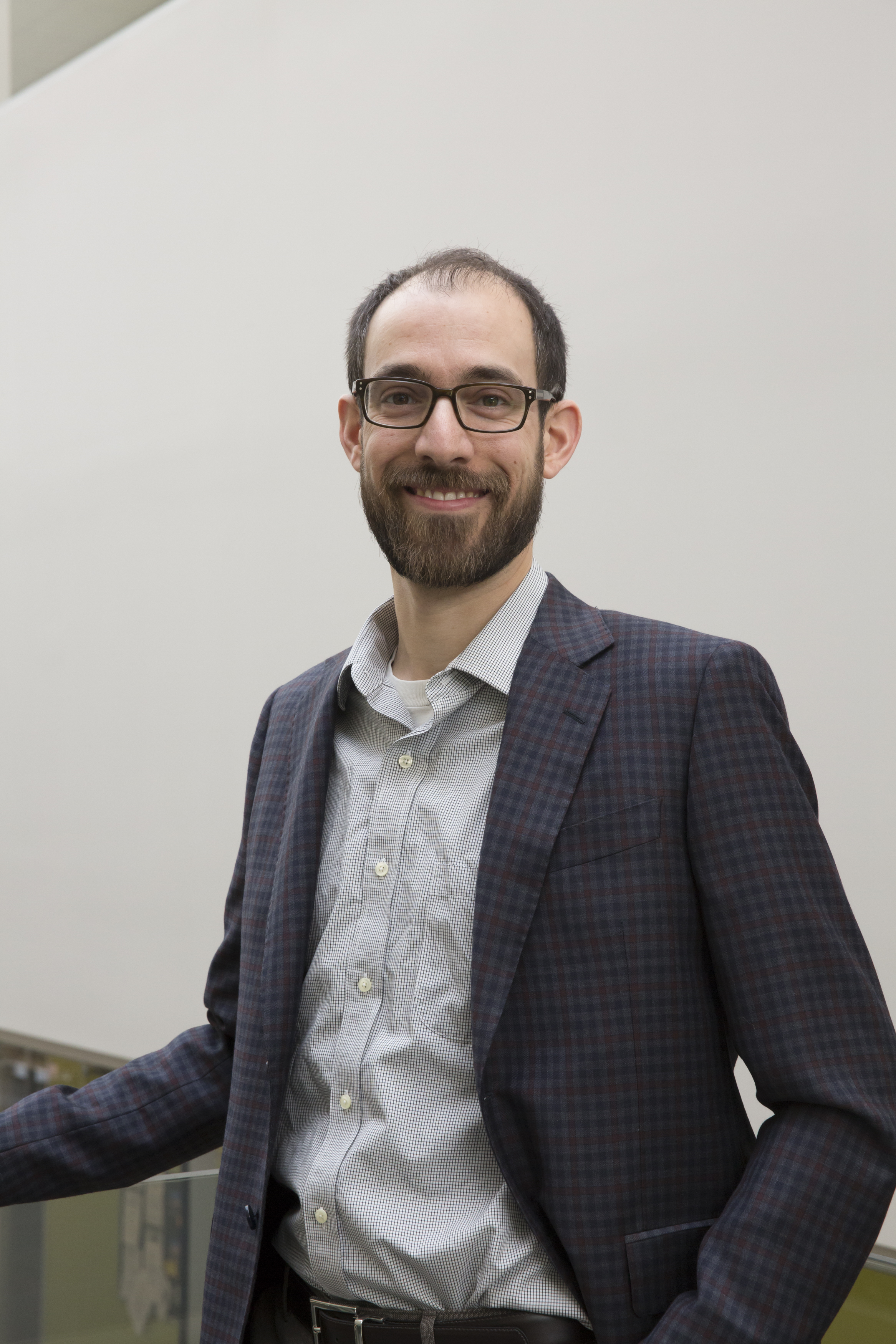 Decision-making and adaptation to climate change requires quantitative projections of the physical climate system and an accurate understanding of the uncertainty in those projections. Earth system models (ESMs), which solve the Navier-Stokes equations on the sphere, are the only tool that climate scientists have to make projections forward into climate states that have not been observed in the historical data record. Yet, ESMs are incredibly complex and expensive codes and contain many poorly constrained physical parameters—for processes such as clouds and convection—that must be calibrated against observations. In this talk, I will describe research from my group that uses ensembles of ESM simulations to train statistical models that learn the behavior and sensitivities of the ESM. Once trained and validated the statistical models are essentially free to run, which allows climate modelling centers to make more efficient use of precious compute cycles. The aim is to improve the quality of future climate projections, by producing better calibrated ESMs, and to improve the quantification of the uncertainties, by better sampling the equifinality of climate states.
Decision-making and adaptation to climate change requires quantitative projections of the physical climate system and an accurate understanding of the uncertainty in those projections. Earth system models (ESMs), which solve the Navier-Stokes equations on the sphere, are the only tool that climate scientists have to make projections forward into climate states that have not been observed in the historical data record. Yet, ESMs are incredibly complex and expensive codes and contain many poorly constrained physical parameters—for processes such as clouds and convection—that must be calibrated against observations. In this talk, I will describe research from my group that uses ensembles of ESM simulations to train statistical models that learn the behavior and sensitivities of the ESM. Once trained and validated the statistical models are essentially free to run, which allows climate modelling centers to make more efficient use of precious compute cycles. The aim is to improve the quality of future climate projections, by producing better calibrated ESMs, and to improve the quantification of the uncertainties, by better sampling the equifinality of climate states.
-
- Date & Time: December 9, 2021; 7pm EST
Where: virtual
MERL Contact: Toshiaki Koike-Akino
Research Areas: Communications, Machine Learning, Signal Processing
Brief - Toshiaki Koike-Akino (Signal Processing group, Network Intelligence Team) is giving an invited talk titled, `Evolution of Machine Learning for Photonic Research' for the Boston Photonic Chapter of the IEEE Photonic Society on December 9. The talk covers recent MERL research on machine learning for nonlinearity compensation and nanophotonic device design.
-
- Date & Time: Thursday, December 9, 2021; 1:00pm - 5:30pm EST
Location: Virtual Event
Speaker: Prof. Melanie Zeilinger, ETH
Research Areas: Applied Physics, Artificial Intelligence, Communications, Computational Sensing, Computer Vision, Control, Data Analytics, Dynamical Systems, Electric Systems, Electronic and Photonic Devices, Machine Learning, Multi-Physical Modeling, Optimization, Robotics, Signal Processing, Speech & Audio, Digital Video, Human-Computer Interaction, Information Security
Brief - MERL is excited to announce the second keynote speaker for our Virtual Open House 2021:
Prof. Melanie Zeilinger from ETH .
Our virtual open house will take place on December 9, 2021, 1:00pm - 5:30pm (EST).
Join us to learn more about who we are, what we do, and discuss our internship and employment opportunities. Prof. Zeilinger's talk is scheduled for 3:15pm - 3:45pm (EST).
Registration: https://mailchi.mp/merl/merlvoh2021
Keynote Title: Control Meets Learning - On Performance, Safety and User Interaction
Abstract: With increasing sensing and communication capabilities, physical systems today are becoming one of the largest generators of data, making learning a central component of autonomous control systems. While this paradigm shift offers tremendous opportunities to address new levels of system complexity, variability and user interaction, it also raises fundamental questions of learning in a closed-loop dynamical control system. In this talk, I will present some of our recent results showing how even safety-critical systems can leverage the potential of data. I will first briefly present concepts for using learning for automatic controller design and for a new safety framework that can equip any learning-based controller with safety guarantees. The second part will then discuss how expert and user information can be utilized to optimize system performance, where I will particularly highlight an approach developed together with MERL for personalizing the motion planning in autonomous driving to the individual driving style of a passenger.
-
- Date & Time: Thursday, December 9, 2021; 1:00pm - 5:30pm EST
Location: Virtual Event
Speaker: Prof. Ashok Veeraraghavan, Rice University
Research Areas: Applied Physics, Artificial Intelligence, Communications, Computational Sensing, Computer Vision, Control, Data Analytics, Dynamical Systems, Electric Systems, Electronic and Photonic Devices, Machine Learning, Multi-Physical Modeling, Optimization, Robotics, Signal Processing, Speech & Audio, Digital Video, Human-Computer Interaction, Information Security
Brief - MERL is excited to announce the first keynote speaker for our Virtual Open House 2021:
Prof. Ashok Veeraraghavan from Rice University.
Our virtual open house will take place on December 9, 2021, 1:00pm - 5:30pm (EST).
Join us to learn more about who we are, what we do, and discuss our internship and employment opportunities. Prof. Veeraraghavan's talk is scheduled for 1:15pm - 1:45pm (EST).
Registration: https://mailchi.mp/merl/merlvoh2021
Keynote Title: Computational Imaging: Beyond the limits imposed by lenses.
Abstract: The lens has long been a central element of cameras, since its early use in the mid-nineteenth century by Niepce, Talbot, and Daguerre. The role of the lens, from the Daguerrotype to modern digital cameras, is to refract light to achieve a one-to-one mapping between a point in the scene and a point on the sensor. This effect enables the sensor to compute a particular two-dimensional (2D) integral of the incident 4D light-field. We propose a radical departure from this practice and the many limitations it imposes. In the talk we focus on two inter-related research projects that attempt to go beyond lens-based imaging.
First, we discuss our lab’s recent efforts to build flat, extremely thin imaging devices by replacing the lens in a conventional camera with an amplitude mask and computational reconstruction algorithms. These lensless cameras, called FlatCams can be less than a millimeter in thickness and enable applications where size, weight, thickness or cost are the driving factors. Second, we discuss high-resolution, long-distance imaging using Fourier Ptychography, where the need for a large aperture aberration corrected lens is replaced by a camera array and associated phase retrieval algorithms resulting again in order of magnitude reductions in size, weight and cost. Finally, I will spend a few minutes discussing how the wholistic computational imaging approach can be used to create ultra-high-resolution wavefront sensors.
-
- Date & Time: Tuesday, November 16, 2021; 11:00 AM EST
Speaker: Thomas Schön, Uppsala University
Research Areas: Dynamical Systems, Machine Learning
Abstract 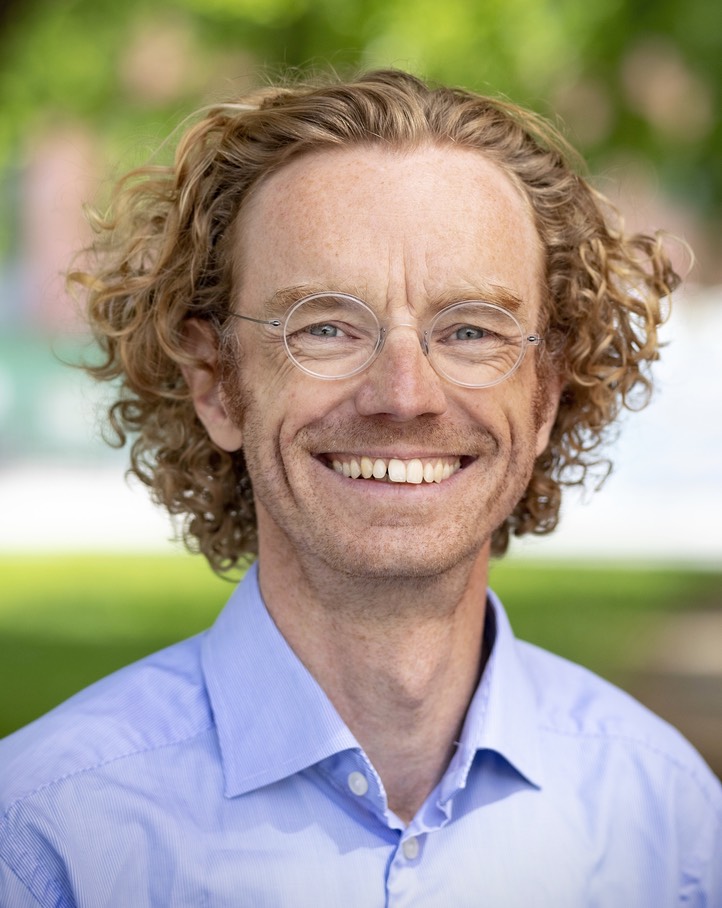 While deep learning-based classification is generally addressed using standardized approaches, this is really not the case when it comes to the study of regression problems. There are currently several different approaches used for regression and there is still room for innovation. We have developed a general deep regression method with a clear probabilistic interpretation. The basic building block in our construction is an energy-based model of the conditional output density p(y|x), where we use a deep neural network to predict the un-normalized density from input-output pairs (x, y). Such a construction is also commonly referred to as an implicit representation. The resulting learning problem is challenging and we offer some insights on how to deal with it. We show good performance on several computer vision regression tasks, system identification problems and 3D object detection using laser data.
While deep learning-based classification is generally addressed using standardized approaches, this is really not the case when it comes to the study of regression problems. There are currently several different approaches used for regression and there is still room for innovation. We have developed a general deep regression method with a clear probabilistic interpretation. The basic building block in our construction is an energy-based model of the conditional output density p(y|x), where we use a deep neural network to predict the un-normalized density from input-output pairs (x, y). Such a construction is also commonly referred to as an implicit representation. The resulting learning problem is challenging and we offer some insights on how to deal with it. We show good performance on several computer vision regression tasks, system identification problems and 3D object detection using laser data.
-
- Date & Time: Tuesday, November 9, 2021; 1:00 PM EST
Speaker: Prof. Marco Di Renzo, CNRS & Paris-Saclay University
Research Areas: Communications, Electronic and Photonic Devices, Signal Processing
Abstract 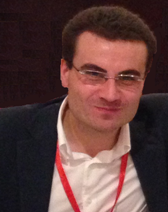 A Reconfigurable Intelligent Surface (RIS) is a planar structure that is engineered to have properties that enable the dynamic control of the electromagnetic waves. In wireless communications and networks, RISs are an emerging technology for realizing programmable and reconfigurable wireless propagation environments through nearly passive and tunable signal transformations. RIS-assisted programmable wireless environments are a multidisciplinary research endeavor. This presentation is aimed to report the latest research advances on modeling, analyzing, and optimizing RISs for wireless communications with focus on electromagnetically consistent models, analytical frameworks, and optimization algorithms.
A Reconfigurable Intelligent Surface (RIS) is a planar structure that is engineered to have properties that enable the dynamic control of the electromagnetic waves. In wireless communications and networks, RISs are an emerging technology for realizing programmable and reconfigurable wireless propagation environments through nearly passive and tunable signal transformations. RIS-assisted programmable wireless environments are a multidisciplinary research endeavor. This presentation is aimed to report the latest research advances on modeling, analyzing, and optimizing RISs for wireless communications with focus on electromagnetically consistent models, analytical frameworks, and optimization algorithms.
-
- Date: December 10, 2021
Research Areas: Electronic and Photonic Devices, Machine Learning
Brief - MERL's Researcher Dr. Rui Ma is the keynote speaker for Electronic Design Innovation CON (EDICON2021) to be held in Shenzhen, China from Dec. 9-10, with a talk titled "Digitization and intelligence: unlocking the innovation of future radios". The conference brings together international researchers from academics, industry, and media distribution to share perspectives on the technology needed and being developed for the next generation of communication.
-
- Date & Time: Tuesday, November 2, 2021; 1:00 PM EST
Speaker: Dr. Hsiao-Yu (Fish) Tung, MIT BCS
Research Areas: Artificial Intelligence, Computer Vision, Machine Learning, Robotics
Abstract 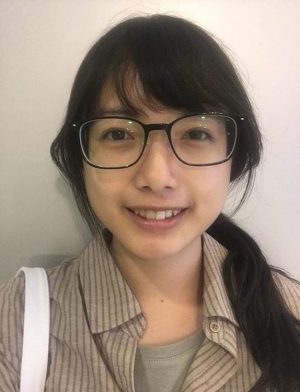 Current state-of-the-art CNNs can localize and name objects in internet photos, yet, they miss the basic knowledge that a two-year-old toddler has possessed: objects persist over time despite changes in the observer’s viewpoint or during cross-object occlusions; objects have 3D extent; solid objects do not pass through each other. In this talk, I will introduce neural architectures that learn to parse video streams of a static scene into world-centric 3D feature maps by disentangling camera motion from scene appearance. I will show the proposed architectures learn object permanence, can imagine RGB views from novel viewpoints in truly novel scenes, can conduct basic spatial reasoning and planning, can infer affordability in sentences, and can learn geometry-aware 3D concepts that allow pose-aware object recognition to happen with weak/sparse labels. Our experiments suggest that the proposed architectures are essential for the models to generalize across objects and locations, and it overcomes many limitations of 2D CNNs. I will show how we can use the proposed 3D representations to build machine perception and physical understanding more close to humans.
Current state-of-the-art CNNs can localize and name objects in internet photos, yet, they miss the basic knowledge that a two-year-old toddler has possessed: objects persist over time despite changes in the observer’s viewpoint or during cross-object occlusions; objects have 3D extent; solid objects do not pass through each other. In this talk, I will introduce neural architectures that learn to parse video streams of a static scene into world-centric 3D feature maps by disentangling camera motion from scene appearance. I will show the proposed architectures learn object permanence, can imagine RGB views from novel viewpoints in truly novel scenes, can conduct basic spatial reasoning and planning, can infer affordability in sentences, and can learn geometry-aware 3D concepts that allow pose-aware object recognition to happen with weak/sparse labels. Our experiments suggest that the proposed architectures are essential for the models to generalize across objects and locations, and it overcomes many limitations of 2D CNNs. I will show how we can use the proposed 3D representations to build machine perception and physical understanding more close to humans.
-
- Date: October 21, 2021
Where: Université de Lorraine, France
MERL Contact: Ankush Chakrabarty
Research Areas: Artificial Intelligence, Control, Machine Learning, Multi-Physical Modeling, Optimization
Brief - Ankush Chakrabarty (RS, Multiphysical Systems Team) gave an invited talk on `Bayesian-Optimized Estimation and Control for Buildings and HVAC' at the Research Center for Automatic Control (CRAN) in the University of Lorraine in France. The talk presented recent MERL research on probabilistic machine learning for set-point optimization and calibration of digital twins for building energy systems.
-
 Human sensory perception of the physical world is rich and multimodal and can flexibly integrate input from all five sensory modalities -- vision, touch, smell, hearing, and taste. However, in AI, attention has primarily focused on visual perception. In this talk, I will introduce my efforts in connecting vision with sound, which will allow machine perception systems to see objects and infer physics from multi-sensory data. In the first part of my talk, I will introduce a. self-supervised approach that could learn to parse images and separate the sound sources by watching and listening to unlabeled videos without requiring additional manual supervision. In the second part of my talk, I will show we may further infer the underlying causal structure in 3D environments through visual and auditory observations. This enables agents to seek the sound source of repeating environmental sound (e.g., alarm) or identify what object has fallen, and where, from an intermittent impact sound.
Human sensory perception of the physical world is rich and multimodal and can flexibly integrate input from all five sensory modalities -- vision, touch, smell, hearing, and taste. However, in AI, attention has primarily focused on visual perception. In this talk, I will introduce my efforts in connecting vision with sound, which will allow machine perception systems to see objects and infer physics from multi-sensory data. In the first part of my talk, I will introduce a. self-supervised approach that could learn to parse images and separate the sound sources by watching and listening to unlabeled videos without requiring additional manual supervision. In the second part of my talk, I will show we may further infer the underlying causal structure in 3D environments through visual and auditory observations. This enables agents to seek the sound source of repeating environmental sound (e.g., alarm) or identify what object has fallen, and where, from an intermittent impact sound. Machine learning has shown incredible promise in robotics, with some notable recent demonstrations in manipulation and sim2real transfer. These results, however, require either an accurate a priori model (for simulation) or a large amount of data. In contrast, my lab is focused on enabling robots to enter novel environments and then, with minimal time to gather information, accomplish complex tasks. In this talk, I will argue that the hybrid or contact-driven nature of real-world robotics, where a robot must safely and quickly interact with objects, drives this high data requirement. In particular, the inductive biases inherent in standard learning methods fundamentally clash with the non-differentiable physics of contact-rich robotics. Focusing on model learning, or system identification, I will show both empirical and theoretical results which demonstrate that contact stiffness leads to poor training and generalization, leading to some healthy skepticism of simulation experiments trained on artificially soft environments. Fortunately, implicit learning formulations, which embed convex optimization problems, can dramatically reshape the optimization landscape for these stiff problems. By carefully reasoning about the roles of stiffness and discontinuity, and integrating non-smooth structures, we demonstrate dramatically improved learning performance. Within this family of approaches, ContactNets accurately identifies the geometry and dynamics of a six-sided cube bouncing, sliding, and rolling across a surface from only a handful of sample trajectories. Similarly, a piecewise-affine hybrid system with thousands of modes can be identified purely from state transitions. Time permitting, I'll discuss how these learned models can be deployed for control via recent results in real-time, multi-contact MPC.
Machine learning has shown incredible promise in robotics, with some notable recent demonstrations in manipulation and sim2real transfer. These results, however, require either an accurate a priori model (for simulation) or a large amount of data. In contrast, my lab is focused on enabling robots to enter novel environments and then, with minimal time to gather information, accomplish complex tasks. In this talk, I will argue that the hybrid or contact-driven nature of real-world robotics, where a robot must safely and quickly interact with objects, drives this high data requirement. In particular, the inductive biases inherent in standard learning methods fundamentally clash with the non-differentiable physics of contact-rich robotics. Focusing on model learning, or system identification, I will show both empirical and theoretical results which demonstrate that contact stiffness leads to poor training and generalization, leading to some healthy skepticism of simulation experiments trained on artificially soft environments. Fortunately, implicit learning formulations, which embed convex optimization problems, can dramatically reshape the optimization landscape for these stiff problems. By carefully reasoning about the roles of stiffness and discontinuity, and integrating non-smooth structures, we demonstrate dramatically improved learning performance. Within this family of approaches, ContactNets accurately identifies the geometry and dynamics of a six-sided cube bouncing, sliding, and rolling across a surface from only a handful of sample trajectories. Similarly, a piecewise-affine hybrid system with thousands of modes can be identified purely from state transitions. Time permitting, I'll discuss how these learned models can be deployed for control via recent results in real-time, multi-contact MPC. Reinforcement Learning (RL), similarly to many AI-based techniques, is currently receiving a very high attention. RL is most commonly supported by classic Machine Learning techniques, i.e. typically Deep Neural Networks (DNNs). While there are good motivations for using DNNs in RL, there are also significant drawbacks. The lack of “explainability” of the resulting control policies, and the difficulty to provide guarantees on their closed-loop behavior (safety, stability) makes DNN-based policies problematic in many applications. In this talk, we will discuss an alternative approach to support RL, via formal optimal control tools based on Model Predictive Control (MPC). This approach alleviates the issues detailed above, but also presents some challenges. In this talk, we will discuss why MPC is a valid tool to support RL, and how MPC can be combined with RL (RLMPC). We will then discuss some recent results regarding this combination, the known challenges, and the kind of control applications where we believe that RLMPC will be a valuable approach.
Reinforcement Learning (RL), similarly to many AI-based techniques, is currently receiving a very high attention. RL is most commonly supported by classic Machine Learning techniques, i.e. typically Deep Neural Networks (DNNs). While there are good motivations for using DNNs in RL, there are also significant drawbacks. The lack of “explainability” of the resulting control policies, and the difficulty to provide guarantees on their closed-loop behavior (safety, stability) makes DNN-based policies problematic in many applications. In this talk, we will discuss an alternative approach to support RL, via formal optimal control tools based on Model Predictive Control (MPC). This approach alleviates the issues detailed above, but also presents some challenges. In this talk, we will discuss why MPC is a valid tool to support RL, and how MPC can be combined with RL (RLMPC). We will then discuss some recent results regarding this combination, the known challenges, and the kind of control applications where we believe that RLMPC will be a valuable approach. Since its 3.3 release, Modelica offers the possibility to specify models of dynamical systems with multiple modes having different DAE-based dynamics. However, the handling of such models by the current Modelica tools is not satisfactory, with mathematically sound models yielding exceptions at runtime. In our introduction, will briefly explain why and when the approximate structural analysis implemented in current Modelica tools leads to such errors. Then we will present our multimode Pryce Sigma-method for index reduction, in which the mode-dependent Sigma-matrix is represented in a dual form, by attaching, to every valuation of the sigma_ij entry of the Sigma matrix, the predicate characterizing the set of modes in which sigma_ij takes this value. We will illustrate this multimode analysis on example, by using our IsamDAE tool. In a second part, we will complement this multimode DAE structural analysis by a new structural analysis of mode changes (and, more generally, transient modes holding for zero time). Also, mode changes often give raise to impulsive behaviors: we will present a compile-time analysis identifying such behaviors. Our structural analysis of mode changes deeply relies on nonstandard analysis, which is a mathematical framework in which infinitesimals and infinities are first class citizens.
Since its 3.3 release, Modelica offers the possibility to specify models of dynamical systems with multiple modes having different DAE-based dynamics. However, the handling of such models by the current Modelica tools is not satisfactory, with mathematically sound models yielding exceptions at runtime. In our introduction, will briefly explain why and when the approximate structural analysis implemented in current Modelica tools leads to such errors. Then we will present our multimode Pryce Sigma-method for index reduction, in which the mode-dependent Sigma-matrix is represented in a dual form, by attaching, to every valuation of the sigma_ij entry of the Sigma matrix, the predicate characterizing the set of modes in which sigma_ij takes this value. We will illustrate this multimode analysis on example, by using our IsamDAE tool. In a second part, we will complement this multimode DAE structural analysis by a new structural analysis of mode changes (and, more generally, transient modes holding for zero time). Also, mode changes often give raise to impulsive behaviors: we will present a compile-time analysis identifying such behaviors. Our structural analysis of mode changes deeply relies on nonstandard analysis, which is a mathematical framework in which infinitesimals and infinities are first class citizens. Given only a single picture, people are capable of inferring a mental representation that encodes rich information about the underlying 3D scene. We acquire this skill not through massive labeled datasets of 3D scenes, but through self-supervised observation and interaction. Building machines that can infer similarly rich neural scene representations is critical if they are to one day parallel people’s ability to understand, navigate, and interact with their surroundings. This poses a unique set of challenges that sets neural scene representations apart from conventional representations of 3D scenes: Rendering and processing operations need to be differentiable, and the type of information they encode is unknown a priori, requiring them to be extraordinarily flexible. At the same time, training them without ground-truth 3D supervision is an underdetermined problem, highlighting the need for structure and inductive biases without which models converge to spurious explanations.
Given only a single picture, people are capable of inferring a mental representation that encodes rich information about the underlying 3D scene. We acquire this skill not through massive labeled datasets of 3D scenes, but through self-supervised observation and interaction. Building machines that can infer similarly rich neural scene representations is critical if they are to one day parallel people’s ability to understand, navigate, and interact with their surroundings. This poses a unique set of challenges that sets neural scene representations apart from conventional representations of 3D scenes: Rendering and processing operations need to be differentiable, and the type of information they encode is unknown a priori, requiring them to be extraordinarily flexible. At the same time, training them without ground-truth 3D supervision is an underdetermined problem, highlighting the need for structure and inductive biases without which models converge to spurious explanations. Humans learn spoken language and visual perception at an early age by being immersed in the world around them. Why can't computers do the same? In this talk, I will describe our ongoing work to develop methodologies for grounding continuous speech signals at the raw waveform level to natural image scenes. I will first present self-supervised models capable of discovering discrete, hierarchical structure (words and sub-word units) in the speech signal. Instead of conventional annotations, these models learn from correspondences between speech sounds and visual patterns such as objects and textures. Next, I will demonstrate how these discrete units can be used as a drop-in replacement for text transcriptions in an image captioning system, enabling us to directly synthesize spoken descriptions of images without the need for text as an intermediate representation. Finally, I will describe our latest work on Transformer-based models of visually-grounded speech. These models significantly outperform the prior state of the art on semantic speech-to-image retrieval tasks, and also learn representations that are useful for a multitude of other speech processing tasks.
Humans learn spoken language and visual perception at an early age by being immersed in the world around them. Why can't computers do the same? In this talk, I will describe our ongoing work to develop methodologies for grounding continuous speech signals at the raw waveform level to natural image scenes. I will first present self-supervised models capable of discovering discrete, hierarchical structure (words and sub-word units) in the speech signal. Instead of conventional annotations, these models learn from correspondences between speech sounds and visual patterns such as objects and textures. Next, I will demonstrate how these discrete units can be used as a drop-in replacement for text transcriptions in an image captioning system, enabling us to directly synthesize spoken descriptions of images without the need for text as an intermediate representation. Finally, I will describe our latest work on Transformer-based models of visually-grounded speech. These models significantly outperform the prior state of the art on semantic speech-to-image retrieval tasks, and also learn representations that are useful for a multitude of other speech processing tasks. As imaging requirements become more demanding, we must rely on increasingly sparse and/or noisy measurements that fail to paint a complete picture. Computational imaging pipelines, which replace optics with computation, have enabled image formation in situations that are impossible for conventional optical imaging. For instance, the first black hole image, published in 2019, was only made possible through the development of computational imaging pipelines that worked alongside an Earth-sized distributed telescope. However, remaining scientific questions motivate us to improve this computational telescope to see black hole phenomena still invisible to us and to meaningfully interpret the collected data. This talk will discuss how we are leveraging and building upon recent advances in machine learning in order to achieve more efficient uncertainty quantification of reconstructed images as well as to develop techniques that allow us to extract the evolving structure of our own Milky Way's black hole over the course of a night, perhaps even in three dimensions.
As imaging requirements become more demanding, we must rely on increasingly sparse and/or noisy measurements that fail to paint a complete picture. Computational imaging pipelines, which replace optics with computation, have enabled image formation in situations that are impossible for conventional optical imaging. For instance, the first black hole image, published in 2019, was only made possible through the development of computational imaging pipelines that worked alongside an Earth-sized distributed telescope. However, remaining scientific questions motivate us to improve this computational telescope to see black hole phenomena still invisible to us and to meaningfully interpret the collected data. This talk will discuss how we are leveraging and building upon recent advances in machine learning in order to achieve more efficient uncertainty quantification of reconstructed images as well as to develop techniques that allow us to extract the evolving structure of our own Milky Way's black hole over the course of a night, perhaps even in three dimensions. Thin large-area structures with aperiodic subwavelength patterns can unleash the full power of Maxwell’s equations for focusing light and a variety of other wave transformation or optical applications. Because of their irregularity and large scale, capturing the full scattering through these devices is one of the most challenging tasks for computational design: enter extreme optics! This talk will present ways to harness the full computational power of modern large-scale optimization in order to design optical devices with thousands or millions of free parameters. We exploit various methods of domain-decomposition approximations, supercomputer-scale topology optimization, laptop-scale “surrogate” models based on Chebyshev interpolation and/or new scientific machine learning models, and other techniques to attack challenging problems: achromatic lenses that simultaneously handle many wavelengths and angles, “deep” images, hyperspectral imaging, and more.
Thin large-area structures with aperiodic subwavelength patterns can unleash the full power of Maxwell’s equations for focusing light and a variety of other wave transformation or optical applications. Because of their irregularity and large scale, capturing the full scattering through these devices is one of the most challenging tasks for computational design: enter extreme optics! This talk will present ways to harness the full computational power of modern large-scale optimization in order to design optical devices with thousands or millions of free parameters. We exploit various methods of domain-decomposition approximations, supercomputer-scale topology optimization, laptop-scale “surrogate” models based on Chebyshev interpolation and/or new scientific machine learning models, and other techniques to attack challenging problems: achromatic lenses that simultaneously handle many wavelengths and angles, “deep” images, hyperspectral imaging, and more. Decision-making and adaptation to climate change requires quantitative projections of the physical climate system and an accurate understanding of the uncertainty in those projections. Earth system models (ESMs), which solve the Navier-Stokes equations on the sphere, are the only tool that climate scientists have to make projections forward into climate states that have not been observed in the historical data record. Yet, ESMs are incredibly complex and expensive codes and contain many poorly constrained physical parameters—for processes such as clouds and convection—that must be calibrated against observations. In this talk, I will describe research from my group that uses ensembles of ESM simulations to train statistical models that learn the behavior and sensitivities of the ESM. Once trained and validated the statistical models are essentially free to run, which allows climate modelling centers to make more efficient use of precious compute cycles. The aim is to improve the quality of future climate projections, by producing better calibrated ESMs, and to improve the quantification of the uncertainties, by better sampling the equifinality of climate states.
Decision-making and adaptation to climate change requires quantitative projections of the physical climate system and an accurate understanding of the uncertainty in those projections. Earth system models (ESMs), which solve the Navier-Stokes equations on the sphere, are the only tool that climate scientists have to make projections forward into climate states that have not been observed in the historical data record. Yet, ESMs are incredibly complex and expensive codes and contain many poorly constrained physical parameters—for processes such as clouds and convection—that must be calibrated against observations. In this talk, I will describe research from my group that uses ensembles of ESM simulations to train statistical models that learn the behavior and sensitivities of the ESM. Once trained and validated the statistical models are essentially free to run, which allows climate modelling centers to make more efficient use of precious compute cycles. The aim is to improve the quality of future climate projections, by producing better calibrated ESMs, and to improve the quantification of the uncertainties, by better sampling the equifinality of climate states. While deep learning-based classification is generally addressed using standardized approaches, this is really not the case when it comes to the study of regression problems. There are currently several different approaches used for regression and there is still room for innovation. We have developed a general deep regression method with a clear probabilistic interpretation. The basic building block in our construction is an energy-based model of the conditional output density p(y|x), where we use a deep neural network to predict the un-normalized density from input-output pairs (x, y). Such a construction is also commonly referred to as an implicit representation. The resulting learning problem is challenging and we offer some insights on how to deal with it. We show good performance on several computer vision regression tasks, system identification problems and 3D object detection using laser data.
While deep learning-based classification is generally addressed using standardized approaches, this is really not the case when it comes to the study of regression problems. There are currently several different approaches used for regression and there is still room for innovation. We have developed a general deep regression method with a clear probabilistic interpretation. The basic building block in our construction is an energy-based model of the conditional output density p(y|x), where we use a deep neural network to predict the un-normalized density from input-output pairs (x, y). Such a construction is also commonly referred to as an implicit representation. The resulting learning problem is challenging and we offer some insights on how to deal with it. We show good performance on several computer vision regression tasks, system identification problems and 3D object detection using laser data. A Reconfigurable Intelligent Surface (RIS) is a planar structure that is engineered to have properties that enable the dynamic control of the electromagnetic waves. In wireless communications and networks, RISs are an emerging technology for realizing programmable and reconfigurable wireless propagation environments through nearly passive and tunable signal transformations. RIS-assisted programmable wireless environments are a multidisciplinary research endeavor. This presentation is aimed to report the latest research advances on modeling, analyzing, and optimizing RISs for wireless communications with focus on electromagnetically consistent models, analytical frameworks, and optimization algorithms.
A Reconfigurable Intelligent Surface (RIS) is a planar structure that is engineered to have properties that enable the dynamic control of the electromagnetic waves. In wireless communications and networks, RISs are an emerging technology for realizing programmable and reconfigurable wireless propagation environments through nearly passive and tunable signal transformations. RIS-assisted programmable wireless environments are a multidisciplinary research endeavor. This presentation is aimed to report the latest research advances on modeling, analyzing, and optimizing RISs for wireless communications with focus on electromagnetically consistent models, analytical frameworks, and optimization algorithms. Current state-of-the-art CNNs can localize and name objects in internet photos, yet, they miss the basic knowledge that a two-year-old toddler has possessed: objects persist over time despite changes in the observer’s viewpoint or during cross-object occlusions; objects have 3D extent; solid objects do not pass through each other. In this talk, I will introduce neural architectures that learn to parse video streams of a static scene into world-centric 3D feature maps by disentangling camera motion from scene appearance. I will show the proposed architectures learn object permanence, can imagine RGB views from novel viewpoints in truly novel scenes, can conduct basic spatial reasoning and planning, can infer affordability in sentences, and can learn geometry-aware 3D concepts that allow pose-aware object recognition to happen with weak/sparse labels. Our experiments suggest that the proposed architectures are essential for the models to generalize across objects and locations, and it overcomes many limitations of 2D CNNs. I will show how we can use the proposed 3D representations to build machine perception and physical understanding more close to humans.
Current state-of-the-art CNNs can localize and name objects in internet photos, yet, they miss the basic knowledge that a two-year-old toddler has possessed: objects persist over time despite changes in the observer’s viewpoint or during cross-object occlusions; objects have 3D extent; solid objects do not pass through each other. In this talk, I will introduce neural architectures that learn to parse video streams of a static scene into world-centric 3D feature maps by disentangling camera motion from scene appearance. I will show the proposed architectures learn object permanence, can imagine RGB views from novel viewpoints in truly novel scenes, can conduct basic spatial reasoning and planning, can infer affordability in sentences, and can learn geometry-aware 3D concepts that allow pose-aware object recognition to happen with weak/sparse labels. Our experiments suggest that the proposed architectures are essential for the models to generalize across objects and locations, and it overcomes many limitations of 2D CNNs. I will show how we can use the proposed 3D representations to build machine perception and physical understanding more close to humans.